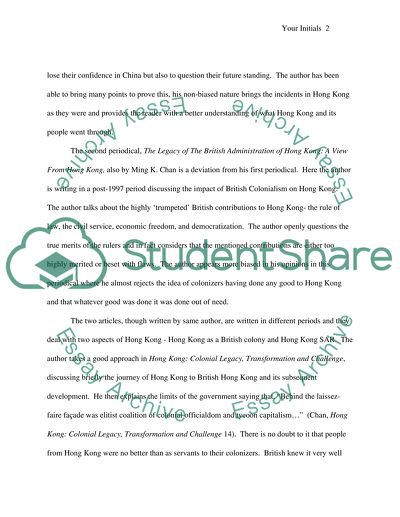Cite this document
(Establishment of Hong Kong as a British Colony Case Study, n.d.)
Establishment of Hong Kong as a British Colony Case Study. Retrieved from https://studentshare.org/history/1549346-establiment-of-hong-kong-as-a-british-colony
Establishment of Hong Kong as a British Colony Case Study. Retrieved from https://studentshare.org/history/1549346-establiment-of-hong-kong-as-a-british-colony
(Establishment of Hong Kong As a British Colony Case Study)
Establishment of Hong Kong As a British Colony Case Study. https://studentshare.org/history/1549346-establiment-of-hong-kong-as-a-british-colony.
Establishment of Hong Kong As a British Colony Case Study. https://studentshare.org/history/1549346-establiment-of-hong-kong-as-a-british-colony.
“Establishment of Hong Kong As a British Colony Case Study”. https://studentshare.org/history/1549346-establiment-of-hong-kong-as-a-british-colony.


